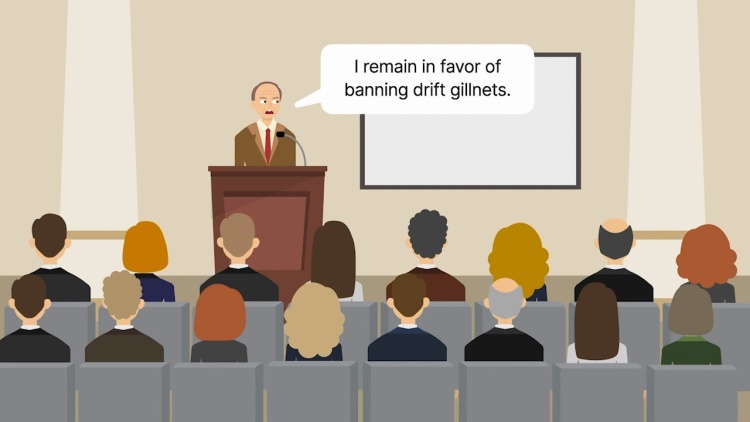C & W Fish Co. v. Fox
United States Court of Appeals for the District of Columbia Circuit
931 F.2d 1556 (1991)

- Written by Eric Cervone, LLM
Facts
William Fox (defendant) was an administrator for the National Oceanic and Atmospheric Administration (NOAA), a regulatory agency within the Department of Commerce. Among other things, NOAA created regulations for the conservation of fishery resources. NOAA, with Fox’s approval, issued a rule banning the use of drift gillnets for catching a specific type of fish. Several groups involved in the fishing industry (the groups) (plaintiffs) filed suit against Fox and NOAA, challenging the rule. Among other things, the groups argued that Fox had an unalterably closed mind regarding the use of drift gillnets and therefore should have been disqualified from participating in the rulemaking process. In support of their argument, the groups showed that before being appointed to NOAA, Fox chaired the Florida Marine Fisheries Commission, which was an outspoken advocate for banning drift gillnets. Further, the groups pointed to an article that quoted Fox as saying that drift gillnets should be eliminated. Finally, as evidence of Fox’s bias, the groups pointed to Fox’s supposed failure to conduct an adequate review of the proposal for banning drift gillnets during rulemaking. The district court granted summary judgment in NOAA and Fox’s favor and dismissed the groups’ suit with prejudice. The groups appealed to the United States Court of Appeals for the District of Columbia Circuit.
Rule of Law
Issue
Holding and Reasoning (Henderson, J.)
What to do next…
Here's why 899,000 law students have relied on our case briefs:
- Written by law professors and practitioners, not other law students. 47,000 briefs, keyed to 994 casebooks. Top-notch customer support.
- The right amount of information, includes the facts, issues, rule of law, holding and reasoning, and any concurrences and dissents.
- Access in your classes, works on your mobile and tablet. Massive library of related video lessons and high quality multiple-choice questions.
- Easy to use, uniform format for every case brief. Written in plain English, not in legalese. Our briefs summarize and simplify; they don’t just repeat the court’s language.





